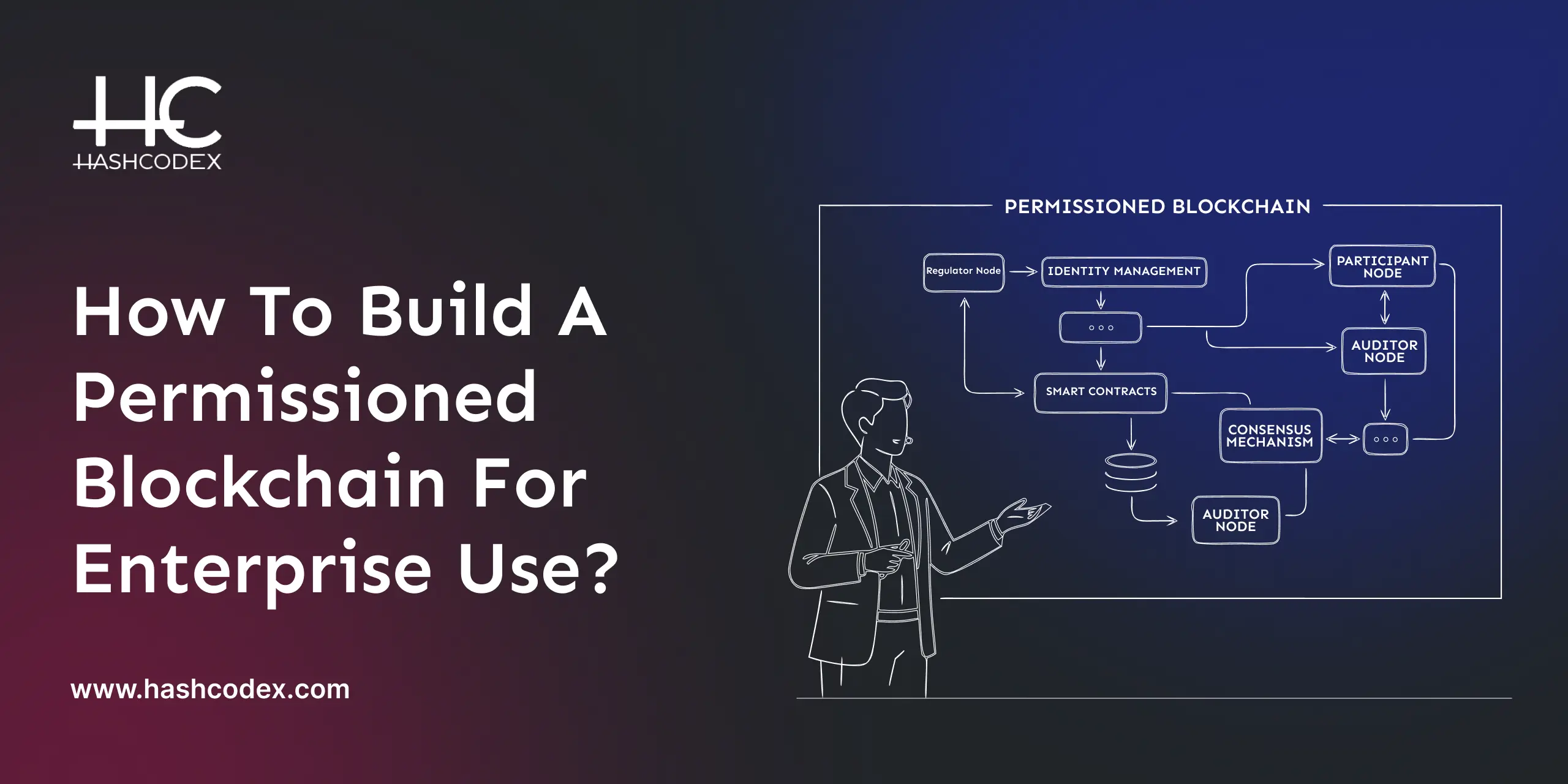What if blockchain’s biggest strength became its biggest concern?
In blockchain, transparency is key. Every transaction, amount exchanged, and wallet address is open to anyone on the network.
This transparency can build trust, but it also exposes sensitive data that businesses and users want to keep private. Your competitor can track your financial moves or know your partnerships.
That’s where Zero-Knowledge Proof (ZKP) comes in.
It can prove the transaction is valid without revealing any private details, and also gives the best of both transparency and privacy.
In this blog, we’ll discuss what a Zero-Knowledge proof is in blockchain and how it's going to be useful for your business with real-world examples.
Let’s get started!
What Is Zero-Knowledge Proof (ZKP)?
A Zero-Knowledge Proof (ZKP) is a cryptographic method that allows a person to prove that something is true without revealing any confidential details. There are two parties involved: the prover and the verifier.
A prover knows a secret and wants to prove it, while a verifier checks the proof to ensure the statement is true. The verifier can be convinced that the statement is true, but he doesn’t know the secret. Sensitive information is protected by being hidden while still getting verified.
For example:
Imagine you’re going to the club. You should prove that you’re over 18 to the guard. Instead of showing your ID with your age, you just show the badge that only adults have. The guard verified your badge and allowed you, even though he didn’t know your exact age.
This is how zero-knowledge proof works.
Zero-Knowledge Proofs in Blockchain: Everything You Should Understand
In blockchain, a transaction history is publicly available. Everyone can see how much money was transferred and even who made the transaction. Zero-knowledge proof can keep this information private while still making the transaction. It was developed by a group of mathematicians in the 1980s.
Blockchain networks are non-interactive, a type of zero-knowledge proof, which doesn’t require proving multiple times. It just checks once and gets verified, and also has the potential to increase the adoption of blockchain. Let’s look at the types even more clearly.
Types of Zero-Knowledge Proofs
It has two different types. They are:
- Interactive: Prover and verifier interact with each other by sharing multiple messages.
- Non-interactive: Prover shares the proof once and gets verified by anyone without interaction.
Interactive zero-knowledge proof (ZKP)
The prover and verifier exchange the messages multiple times. The verifier asks several questions, and the prover has to respond correctly until convincing the verifier. Interactive ZKPs depend on two parties' involvement and a third party can’t verify the proof. It might restrict their application and transferability.
Example: Imagine you and your friends are playing a puzzle game. You’re the one solving the puzzle (prover), and your friend (verifier) asks you questions step by step to ensure you really solved it, and you keep on replying with the correct answer until he is convinced.
Non-interactive zero-knowledge proof (ZKP)
A non-interactive zero-knowledge proof is created by executing an algorithm with the secret data. After obtaining the proof, the verifier uses an alternative method to confirm that the prover is aware of the confidential information. Non-interactive ZKPs need the prover and verifier to exchange a key, and allow a third party to do verification.
Example: Let’s say you want to rent a house, so you want to prove that you have a good credit score, but you don’t want to share your financial details.
You get a digital proof that mentions “Credit score is above 750”, without showing the exact score. The landlord checks and trusts the proof instantly without any interaction with the bank. New plans. New projects. New results. Or just another scroll
session. You choose the story.
Top Advantages of Zero-Knowledge Proof in Blockchain Technology
Zero-knowledge proof in blockchain has several benefits, such as privacy, scalability and security. Here are the other advantages you should know:
- ZKPs allow data verification and transactions without exposing the confidential data through anonymous operations.
- It allows users to secure identity verification and compliant operations like KYC without compromising personal information.
- ZKPs have zk-Rollups, which can bundle thousands of transactions in one proof, reducing network congestion and transaction fees.
- For building an application, scalability is very important to help millions of users at a low cost.
- This proof doesn’t need parties to trust each other or a central intermediary because it provides verifiable proof of authenticity and integrity.
- When the validity proof is verified and completed, it is published on the main blockchain, which shows ZKPs provide faster finality.
Blockchains can process more transactions, protect user privacy and maintain trust all in one place with zero-knowledge proofs.
Core Properties of Zero-Knowledge Proofs (ZKPs)
In ZKPs, properties are the important rules that make the trusted proof system secure. These properties ensure that the prover can convince the verifier that the statement is true without showing hidden data. Let’s look at the three core properties of ZKPs:
Completeness
If the statement is true, both the prover and verifier follow the rules correctly, the verifier will be convinced and approve that the statement is true.
Soundness
If the statement is false, a dishonest prover cannot convince an honest verifier that it is true, except with a negligible probability.
Zero-knowledge
The verifier is not aware of whether the statement is true or false, because he learns nothing from the interaction until the secret input is revealed.
Practical Use Cases for Zero-Knowledge Proof in Blockchain Systems
Zero-knowledge proofs (ZKPs) are transforming the way blockchain usually works. This feature creates a path to many powerful real-world applications across Web3. Here are some of the most practical use cases:
Anonymous payments
In most of the blockchains, every transaction is public. Anyone can see who paid whom and how much. ZKPs solve this by hiding that information while still proving that the transaction is valid.
Secure digital identity
By using ZKPs, users can prove their identity or credentials without exposing their personal details like their name, address, or ID number.
Simplified authentication
ZKPs have the power to replace the old password-based login systems. Instead of remembering a long password or entering your private data, you can send a ZK-proof that ensures your access rights.
Zero-knowledge password proofs
In this method, users know their password, and they can prove it. Even if a hacker breaches the database, there’s no actual password stored to steal. It is a smart approach to make authentication both secure and private.
Verifiable computation & blockchain scalability
ZKPs are gaining the attention of Ethereum to fasten transactions and reduce network load. Instead of running every computation on-chain, the operation is done off-chain, and a ZK-proof is sent back to confirm it was done correctly.
Zero-knowledge proofs are opening the next phase of blockchain technology, where privacy, performance and trust finally come together.
Real-World Examples of Zero-Knowledge Proof in Action
Even though zero-knowledge proof in blockchain may seem complex, it is already transforming digital security and privacy. Here are a few basic, practical examples:
Zcash
Zcash is one of the great examples of ZKP in action. It enables users to send and receive crypto payments privately by hiding wallet addresses and amounts. This shows the blockchain can confirm everything follows the rules, but nobody can see the details.
zkSync and StarkNet
Platforms like zkSync and StarkNet use zero-knowledge proofs to reduce the cost and speed of Ethereum transactions. They provide a single and simplified proof of their validity to the main blockchain after combining hundreds of off-chain transactions.
ING
ING is a Netherlands-based financial institution that has introduced its own zero-knowledge blockchain. They have changed their system to make it a zero-knowledge range proof to reduce the need for computational power.
What Happens Without Zero-Knowledge Proof in Blockchain?
Blockchain without zero-knowledge proof would lead to major privacy issues. This might be the barrier for scalability, processing transactions, and compliance. Let’s see the key challenges you might face:
Lack of privacy
By tracking transactions and connecting wallet addresses to actual identities, users may be de-anonymized. This will lead users to become susceptible to monitoring, and private transactions like contributions or commercial activities may be revealed.
Limited scalability
All transaction data must be processed and stored by each network node. When the network starts to expand, the transaction processing times will slow down, and data storage will grow rapidly.
Compliance issues
Public blockchains can’t check transactions for audits or regulatory compliance without disclosing private information. Businesses are unable to use them for sensitive activities. This prevents companies from using blockchain technology for several applications where privacy matters.
Reduced fungibility and trust
The absence of privacy could harm the network trust because all data is public. If a transaction is connected to illegal behaviour, it might be seen as corrupted, which would reduce the currency’s fungibility.
Conclusion
In 2026, privacy isn’t a luxury; it’s becoming a necessity.
When blockchain starts to grow, the real challenge is not about transparency; it’s about finding the right balance between trust and confidentiality. Zero-knowledge proofs (ZKPs) offer that balance by transforming the way they normally work.
ZKP-based blockchain will soon become the standard for Web3, healthcare, and finance applications that prioritize anonymity.
Want to be ready for this change? Contact Hashcodex now!
We’re one of the reputed blockchain development companies, serving businesses to achieve their goal. Our experienced developers understand your needs and make sure to satisfy you by delivering a quality product on time.
Whether you’re a startup or an existing business that wants to integrate zero-knowledge proof into your blockchain platform, we’re ready to help you throughout the process.
Let’s build and reach success together!











